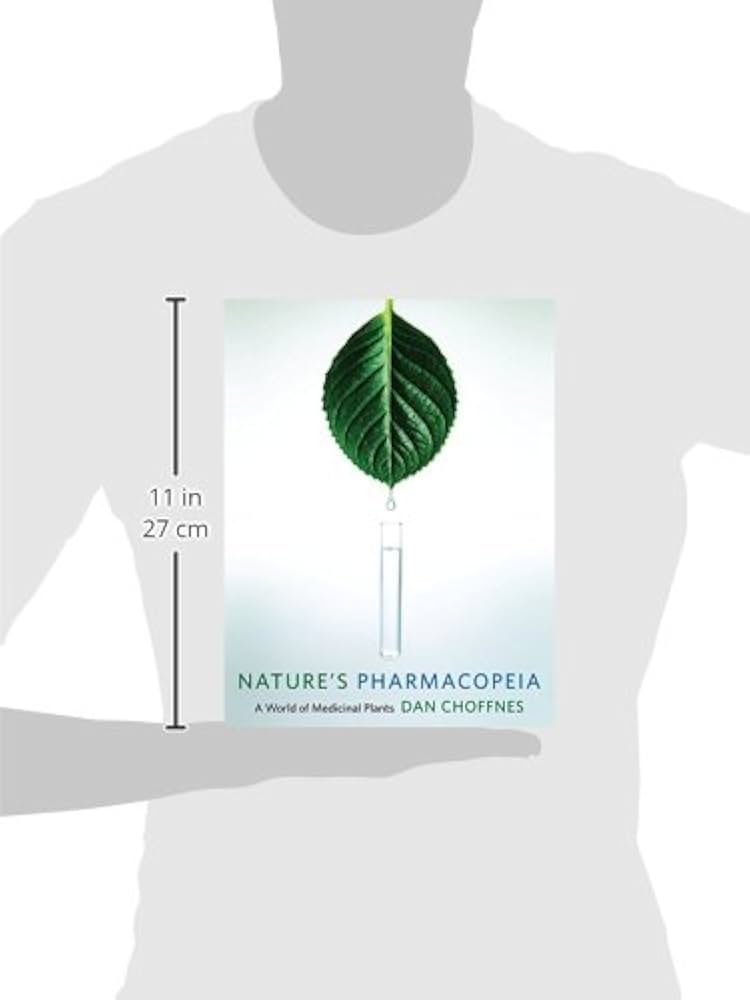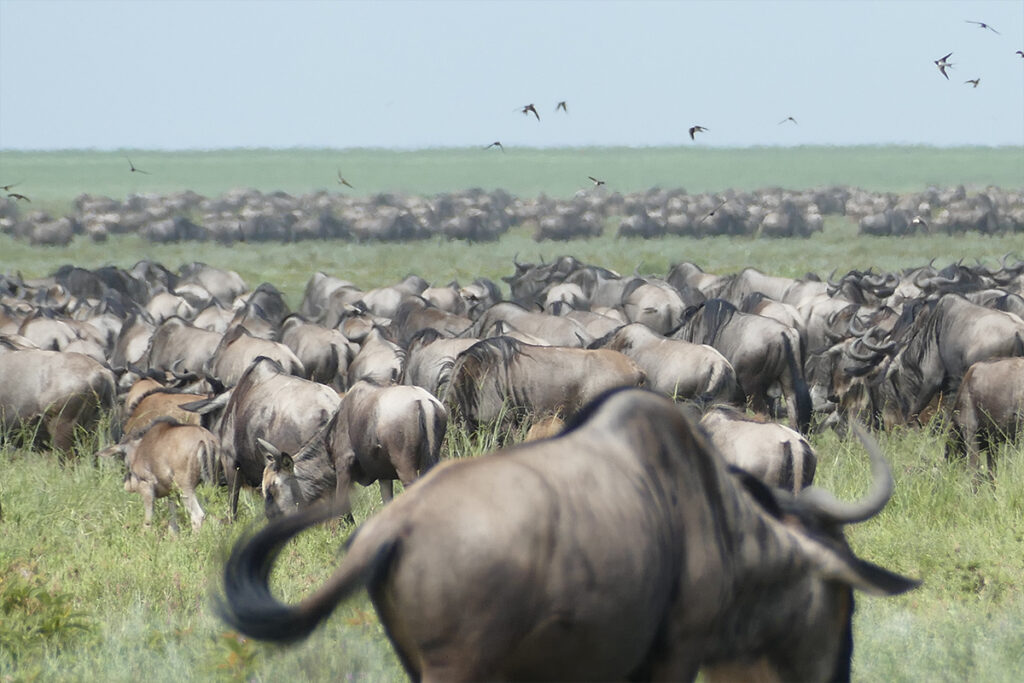It’s intriguing how the Hadzabe people, one of the last hunter-gatherer tribes in Africa, have mastered nature’s pharmacy since time immemorial. Their vast knowledge of medicinal plants is not merely a footnote in ethnobotany; it’s a living testament to centuries of symbiosis between humanity and nature. Against the backdrop of the Serengeti, they’ve harnessed flora’s potential to address ailments, drawing on wisdom passed down through generations.
With an extensive catalog of over 80 identified plant species used for medicinal purposes, the Hadzabe exemplify adept natural resource management. Their pharmacopoeia includes remedies for common illnesses and more complex conditions, a survival strategy developed over 40,000 years. Such tradition underscores the importance of preserving indigenous knowledge in a world where biodiversity loss threatens invaluable cultural heritage and time-tested health solutions.

Hadzabe Medicinal Plants: Nature’s Pharmacy
The Hadzabe people live in Tanzania and are known for their deep understanding of nature. They maintain a collection of medicinal plants that have been used for centuries. This knowledge has been passed down through countless generations, making it an integral part of their culture. These plants serve as a natural pharmacy, treating a variety of ailments. Studies have shown the potential health benefits of their herbal remedies, supporting both everyday well-being and more complex health issues.
The Hadzabe’s survival is partly due to their resourcefulness with local flora. For instance, they use the baobab tree for its nutritious and medicinal properties. Here is the article detailing that they also rely on plants like wild tubers and honey, each with its own healing attributes. This extensive use of plants reflects their sustainable practices and understanding of the natural world. Their plant knowledge is as vast as it is diverse.
In recent times, experts have taken a keen interest in studying these traditional methods. This interest aims to preserve this invaluable heritage and explore potential benefits for modern medicine. Yet, the Hadzabe’s ecological balance and their herbal practices are under threat from external influences. Despite the challenges, efforts continue to document and understand their practices for future generations. The preservation of this wisdom could offer sustainable solutions for health issues worldwide.
The Hadzabe community’s traditional practices highlight a unique respect for nature. Scientists argue that losing this knowledge would be a loss for global cultural heritage. Protecting this wisdom is seen as crucial for biodiversity and cultural diversity alike. According to the article, integrating indigenous wisdom with contemporary science could offer holistic health approaches. As such, promoting awareness is vital to ensuring the conservation of these invaluable resources.
Transform Your Garden Into A Natural Pharmacy With These Potent Medicinal Plants
The Hadzabe Tribe and Their Herbal Traditions
The Hadzabe tribe, residing in Tanzania, is renowned for its deep-seated herbal traditions. They possess an impressive understanding of medicinal plants, which has evolved over thousands of years. This knowledge forms a crucial component of their health and wellness practices. With a collection of around 80 identified medicinal plant species, their expertise is as rich as it is ancient. This botanical culture has shaped their survival strategies in a challenging environment.
The traditions of the Hadzabe extend beyond mere plant usage; they are integral to their way of life. Each plant holds a specific purpose, whether for nutrition, medicine, or spiritual ceremonies. For example, some plants may be used as remedies for colds and fever, while others might aid in wound healing. This intricate relationship between the Hadzabe and their natural surroundings underscores their adaptability and resilience. Moreover, it highlights their sustainable approach to living in harmony with nature.
Exploration of their herbal practices reveals a sophisticated system of knowledge transfer among tribe members. Elders often teach younger generations about herbal identification and application through hands-on experience. This process ensures the continuity of their traditions despite modern influences. Their methods may appear simple, but they reflect a profound understanding of ecological balance. The Hadzabe remain custodians of a fragile knowledge system that has global significance.
Despite external pressures, the Hadzabe maintain their herbal legacy with pride. Their sustainable practices could inspire contemporary approaches to environmental stewardship and health. Protecting this knowledge is vital not only for the Hadzabe but for the wider global community. As more people recognize the importance of nature in well-being, understanding and preserving such traditions become crucial. This delicate balance between tradition and innovation serves as a blueprint for integrating ancient wisdom with modern medicine.
An Exploration of Key Hadzabe Medicinal Plants
The Hadzabe tribe’s natural pharmacy includes a diverse array of pivotal medicinal plants. Among these, the sausage tree is notable for its broad healing capabilities. Its fruit pulp is used to treat skin infections and fungal issues. This plant demonstrates not only the Hadzabe’s expertise but also the power of nature in health applications. Their knowledge of such plants illustrates a unique blend of tradition and science.
Another significant plant in their collection is the baobab tree, a giant that is central to their lifestyle. Baobab leaves are believed to strengthen the immune system due to their high vitamin content. The seeds, too, provide nourishment and are used in various remedies. This dual use for food and medicine showcases the Hadzabe’s resourcefulness. It highlights a holistic approach where nutrition and healing go hand in hand.
Within their herbal repertoire, many plants serve specific roles catered to different health needs. For instance, certain roots are chewed to relieve stomach aches, while some leaves are brewed into teas for respiratory ailments. This methodical application of plants underscores their knowledge’s depth and precision. Often, the effectiveness of these natural remedies is verified through generations of use. Hence, these practices continue to be vital in their daily lives.
Documenting the Hadzabe’s plant knowledge offers invaluable insights into sustainable living. Learning from their practices could inspire new ways to address today’s health challenges globally. As more people seek natural alternatives, the Hadzabe’s methods are increasingly relevant. Their practices could inform wider efforts to blend conventional medicine with nature-inspired solutions. Exploring these plants is an ongoing journey that promises to contribute significantly to modern wellness trends.
The Health Implication of Hadzabe Medicinal Plants
The Hadzabe tribe’s unique connection with medicinal plants brings numerous health benefits. These plants are not just treatments but form an integral part of their daily health routine. By leveraging the natural properties of these plants, they can manage a wide range of health issues. For example, the use of wild tubers helps to maintain their digestive health. This natural approach contrasts with the reliance on synthetic medications in modern societies.
Due to their extensive knowledge, the Hadzabe can address both acute and chronic conditions effectively. Plants like the sausage tree are used for immediate relief from ailments like skin infections. Meanwhile, others like baobab trees offer long-term health benefits, enhancing overall vitality. This dual approach embodies a balanced health strategy. It showcases the effectiveness of combining preventive and remedial healthcare practices.
These traditional practices also have significant implications for mental health. For instance, certain herbs are known to reduce stress and anxiety. The act of gathering these plants in itself can be a calming, meditative process. Such holistic practices benefit both mind and body, creating a sense of well-being. These methods could offer useful insights for contemporary mental health treatments.
Additionally, the sustainability of their medicinal practices cannot be overstated. The Hadzabe’s reliance on locally available resources not only ensures accessibility but also promotes ecological balance. This contrasts sharply with the global trend of exploiting natural resources irresponsibly. Their methods of cultivation and use promote biodiversity and environmental health. Learning from their practices can inspire more sustainable healthcare solutions worldwide.
The health benefits derived from these plants also stretch to nutritional aspects. Many of the medicinal plants used by the Hadzabe are rich in essential vitamins and minerals. This nutritional value supports their overall health and strengthens their immune system. With the growing interest in natural foods and supplements, these traditional plants are gaining attention. They exemplify how nutrition and medicine can work together seamlessly.
The Current State of their Herbal Knowledge
Today, the Hadzabe tribe’s herbal knowledge faces significant challenges. Despite having a rich heritage, they are under pressure from environmental changes and modern influences. This shift threatens the continuation of their traditional practices. Additionally, younger generations are moving away from age-old customs, seeking new opportunities. However, some efforts are being made to preserve their botanical wisdom.
External interest in their herbal practices is growing as scientists and researchers document their methods. This interest aims to ensure this valuable knowledge is not lost. Organizations and individuals are working hand-in-hand with the tribe to create records and teaching materials. Such efforts provide a hope of retention for these age-old traditions. Furthermore, this documentation could serve as a blueprint for sustainable healing practices around the world.
The Hadzabe’s way of life and knowledge is directly tied to their environment. Deforestation and land use changes pose threats to their access to medicinal plants. These environmental pressures disturb their natural balance, disrupting their ancient remedies. Conservation efforts are vital to protecting their land and resources. Preserving their cultural landscape can help maintain the plants they rely on for health and well-being.
Moreover, integrating technological advances with traditional knowledge could empower the community. For instance, using mobile apps for plant identification and information sharing might help maintain interest among younger tribe members. This combination of old and new offers a pathway toward preserving their herbal traditions. Empowering the community with tools and awareness will contribute to saving this priceless legacy. By blending innovation with tradition, the Hadzabe can maintain their valuable cultural heritage.
The global interest in natural remedies boosts the relevance of the Hadzabe’s herbal expertise. As people worldwide look to natural solutions, the tribe’s practices gain new audiences. Collaborations with global health initiatives could spotlight the relevance of their ancient techniques. Sharing this knowledge enriches both the Hadzabe community and those seeking alternative healing methods. It’s a mutually beneficial partnership that celebrates, preserves, and utilizes their native expertise.
Importance of Preserving Hadzabe’s Herbal Wisdom
Safeguarding the Hadzabe’s herbal wisdom is vital for multiple reasons, not least for cultural preservation. Their knowledge reflects a living history of human interaction with nature. By maintaining these traditions, we honor their unique cultural identity. It’s a legacy that connects them to their ancestors and sustains their community today. Preserving this wisdom keeps their heritage alive in a tangible way.
The practical benefits of this herbal knowledge are equally compelling. These medicinal plants offer genuine health solutions that complement conventional medicine. With increasing interest in natural remedies, the Hadzabe’s expertise is more relevant than ever. Their practices highlight sustainable, eco-friendly healthcare approaches. This wisdom offers insights into integrating nature into modern day medicine seamlessly.
The economic potential of preserving their knowledge should not be overlooked. Developing ethical partnerships with the Hadzabe could foster community-led initiatives. These projects can create livelihoods while promoting their medicinal plant practices. Supporting their economy contributes to their resilience against external pressures. It’s a model of sustainable development rooted in tradition.
Environmental conservation is another critical reason to protect this knowledge. The Hadzabe’s understanding of their ecosystem fosters biodiversity. Their practices can guide sustainable land use, beneficial to both people and planet. Protecting their habitat ensures that their plant resources remain accessible. Conservation efforts help maintain the balance necessary for their herbal traditions.
By sharing their wisdom, the Hadzabe can contribute to global knowledge. Collaborations with educational institutions can lead to innovative research on medicinal plants. Such partnerships offer opportunities to learn from their time-tested methods. The Hadzabe can help inspire new generations of scientists and health practitioners. Their ancient wisdom is a treasure for the world, bridging past and present.

Frequently Asked Questions
Here, we explore intriguing questions about the Hadzabe tribe and their profound understanding of medicinal plants. These insights shed light on how they have harnessed nature for health and well-being.
1. How does the Hadzabe tribe recognize medicinal plants?
The Hadzabe tribe identifies medicinal plants through a wealth of ancestral knowledge passed down generationally. Elders teach younger community members, sharing insights on plant characteristics, locations, and uses.
Their identification process relies heavily on hands-on experience and observation. This method ensures continual learning and adaptation, preserving their herbal wisdom in a rapidly changing world.
2. What role do these plants play in Hadzabe culture?
Medicinal plants are deeply woven into the fabric of Hadzabe culture, serving as remedies and spiritual symbols. They are integral to ceremonies, rituals, and everyday health care.
Beyond their practical uses, these plants reinforce community bonds and cultural identity. This relationship highlights the Hadzabe’s holistic connection to their environment, emphasizing a balance between health and tradition.
3. Are Hadzabe medicinal practices documented in any way?
Efforts are underway to document the Hadzabe’s extensive herbal knowledge. Researchers and organizations collaborate with the tribe to preserve this invaluable wisdom.
These documentation initiatives aim to protect their cultural heritage while exploring the potential to benefit modern medicine. This collaboration provides a bridge between traditional and scientific communities.
4. What challenges threaten Hadzabe’s herbal traditions?
The Hadzabe face numerous challenges, including environmental changes and cultural shifts, threatening their herbal practices. Increased deforestation and land usage disturb their plant resources.
Moreover, younger generations might move away from these ancient practices due to modern influences. This highlights the need for renewed focus on preserving and respecting their traditional knowledge.
5. Can global health systems learn from the Hadzabe practices?
Yes, there is much to learn from the Hadzabe’s sustainable and holistic approach to health. Their reliance on accessible natural resources offers insights into eco-friendly medical practices.
Global health systems can benefit by integrating aspects of indigenous plant medicine, fostering innovation in healthcare. This approach emphasizes the potential of blending traditional and modern healing methodologies.
30 Medicinal Plants The Native Americans Used On a Daily Basis | Blissed Zone
Conclusion
The Hadzabe tribe’s medicinal plant knowledge offers invaluable insights into sustainable and holistic healthcare practices. This wisdom, passed down through generations, highlights a deep connection with nature. Preserving and understanding these traditions could benefit both cultural heritage and modern medicine.
By recognizing and respecting indigenous knowledge, we can forge a path towards more inclusive and innovative health solutions. The synergy between ancient practices and contemporary science promises a richer, more balanced approach to global well-being. As we move forward, integrating such wisdom is crucial for a sustainable future.



